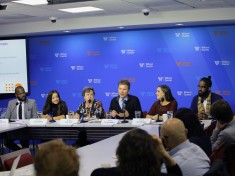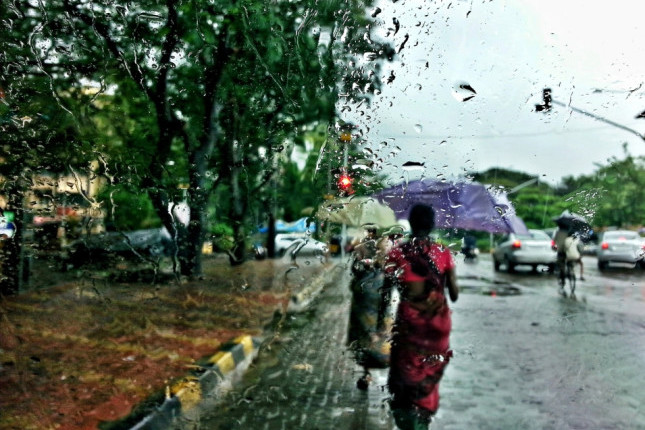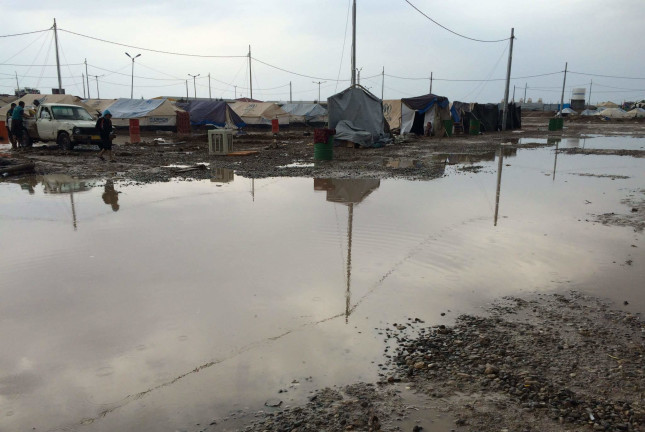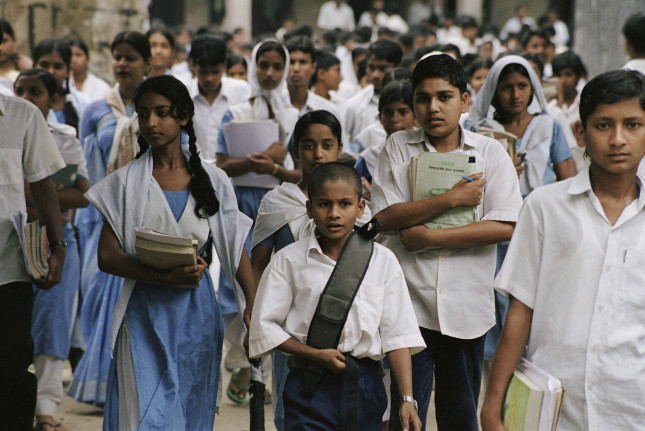-
Recycled Water Could Solve Beijing’s Water Woes, But Implementation Falls Short
›
Huo Chang grows visibly exasperated as he speaks about his city’s water crisis. From his office in Beijing’s largest state-owned environmental investment and service company, China Energy Conservation and Environmental Protection Group (CECEP), the water expert explains how Beijing is in the throes of a population and economic boom that has left its water resources both polluted and depleted. In response to these opposing pressures, the city turned to controversial measures to avoid a Cape Town-like Day Zero crisis in which Beijing would no longer be able to meet the daily water needs of its population of nearly 22 million.
-
Senator Nikoli Edwards: Adolescent Health and Investing in a Generation
›In January 2017, President Anthony Carmona swore in Nikoli Edwards, age 25, as the youngest temporary senator in Trinidad and Tobago’s history. “I have been very much involved in piecing together the puzzle when it comes to how we develop the holistic young person in Trinidad and Tobago,” said Senator Nikoli Edwards in a Wilson Center interview with Roger-Mark De Souza, a Wilson Center Global Fellow, on Edwards’s personal journey into youth advocacy and the importance of engaging young people in decision-making.
-
Not Practicing What It Preaches: China Invests Heavily in Renewable Energy While Exporting Low-Efficiency Coal Power Plants to Developing Countries
›
“China can simultaneously be the world’s biggest polluter and the leading developer and employer of clean energy technologies,” said Joanna Lewis, an associate professor of science, technology, and international affairs at Georgetown University’s Edmund A. Walsh School of Foreign Service at a recent event at The Brookings Institute on China’s local and global environmental agenda. “It’s not just megawatts being added, it’s actual investment in the innovation of these [renewable energy] technologies.”
-
Cultivating Meaningful Youth Engagement in Sexual and Reproductive Health Programming
› “We need to mainstream young people into the decision-making process,” said Senator Nikoli Edwards, age 25, of Trinidad and Tobago at a recent Wilson Center event on engaging youth to protect their sexual and reproductive health and rights. “Where it’s not a matter of, ‘let’s bring a young person into the room as an afterthought,’ but it should be written that a young person has to be a part of the discussion or has to be contributing in a significant way.”
“We need to mainstream young people into the decision-making process,” said Senator Nikoli Edwards, age 25, of Trinidad and Tobago at a recent Wilson Center event on engaging youth to protect their sexual and reproductive health and rights. “Where it’s not a matter of, ‘let’s bring a young person into the room as an afterthought,’ but it should be written that a young person has to be a part of the discussion or has to be contributing in a significant way.” -
Stormy Weather: Human Security Should Include Freedom from Hazard Impacts
›
It is imperative that countries adopt a human security approach to achieve “freedom from hazard impacts”—nationally through a scientific disaster risk reduction strategy and internationally through climate diplomacy.
-
Environmental Security in Times of Armed Conflict
›
This summer, Iraqi citizens in Basra demonstrated in the streets to protest a serious public health crisis caused by polluted water. The condition of their water infrastructure was deplorable after years of devastating wars, corruption, and droughts and regional hydropolitics. More than 100,000 people have reportedly been poisoned by polluted water, while recent estimates warn that some 277,000 children are at risk of diseases, such as cholera due to rundown water and sanitation facilities at schools.
-
Trump Builds Upon Obama’s Fight Against Illegal Wildlife Trafficking
›
President Donald Trump has in many ways worked as President Barack Obama’s foil, rolling back legacy environmental protection regulations and questioning the merit of environmental causes. However, since taking office, his administration has also taken a hard policy line against wildlife crime, continuing and even furthering Obama’s momentum.
-
Demographic Transitions and Ecological Tipping Points: Top Posts for October 2018
›
Once the same country and demographic twins, Bangladesh and Pakistan have diverged greatly in demographics since Bangladesh’s independence in 1971. Richard Cincotta and Elizabeth Leahy Madsen take a look at how despite the country’s vulnerability to extreme weather, sea-level rise, and Islamic extremism, Bangladesh’s bulge of working-age adults with relatively small proportions of seniors and young children offers potential for sustained development.
 A Publication of the Stimson Center.
A Publication of the Stimson Center.


 “We need to mainstream young people into the decision-making process,” said Senator Nikoli Edwards, age 25, of Trinidad and Tobago at a
“We need to mainstream young people into the decision-making process,” said Senator Nikoli Edwards, age 25, of Trinidad and Tobago at a 





